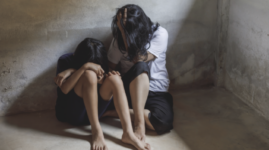The Law, Penalties and Defences Relating to Child Prostitution in NSW

New South Wales has decriminalised prostitution (‘sex work’) involving consenting adults but, and perhaps needless to say, child sexual offences including conduct relating to child prostitution are treated very seriously by the law and the courts.
Here is an outline of the main offences in New South Wales relating to child prostitution, including the defences and maximum penalties that apply.
At what age can a person engage in sex work in NSW?
Although the age of consent for sexual activity in NSW is 16 years old, section 91C of the Crimes Act 1900 (NSW), makes it explicit that a ‘child’ within the context of child prostitution offences is anyone under the age of 18 years old.
This means that a person must be 18 years old to engage in sex work in NSW.
The offence of promoting or engaging in acts of child prostitution
It is an offence under section 91D(1)(a) of the Act for a person to ‘by any means’ cause or induce a child to participate in an act of child prostitution.
It is a further offence under section 91D(1)(b) of the Act for a person to participate as a client with a child in an act of child prostitution.
These offences carry a maximum penalty of 14 years imprisonment if the child is under the age of 14 years old, or 10 years imprisonment if a child is over 14 years old.
An “act of child prostitution” means any sexual service, whether or not involving an indecent act that is:
- provided by a child for the payment of money or the provision of any other material thing (whether or not it is in fact paid or provided to the child or to any other person); and
- that can reasonably be considered to be aimed at the sexual arousal or sexual gratification of a person or persons other than the child.
The offence of obtaining a benefit from child prostitution
It is an offence under section 91E of the Act to receive money or any other material benefit knowing that it is derived directly or indirectly from an act of child prostitution.
This offence carries a maximum penalty of 14 years imprisonment if the child is under the age of 14 years old, or 10 years imprisonment if a child is over 14 years old.
A person will not be guilty of this offence if it satisfies the court that the money or other material benefit:
- was received by the person for the lawful provision of goods or services, or
- was paid or provided in accordance with a judgment or an order of a court or a legislative requirement, whether or not under New South Wales law.
The offence of allowing premises to be used for child prostitution
It is an offence under section 91F of the Act if a person who is capable of exercising lawful control over premises, allows the premises to be used for child prostitution.
This offence carries a maximum penalty of 7 years imprisonment.
For the purposes of this offence, a person will be in lawful control of the premises if:
- they are the owner, lessee, licensee or occupier of premises; or
- are concerned in the management of premises or in controlling the entry of persons to, or their movement within, premises,
A person will not be guilty of this offence if they satisfy the court that:
- they did not know about the act of prostitution was taking place, or
- they did not know that a child was participating in the act or, for any other reason, did not know that the act was an act of child prostitution, or
- they used all due diligence to prevent the child from participating in the act of child prostitution.
Legal defences for child prostitution offences
Legal defences for child prostitution offences can include the common legal defences of duress or mental illness.
The defendant may also be able to argue that they made an honest and reasonable mistake about the victim’s age. This generally would require positive deception, such as the child victim utilising a fake ID to mislead the defendant. The younger the victim, the less likely a defence of honest and reasonable mistake will be successful.
Importantly, the consent of a child is not a defence to a charge relating to any child prostitution offence.
Going to court for a criminal offence?
If you are facing court over a criminal offence, call Sydney Criminal Lawyers anytime on (02) 9261 8881 to arrange a free first consultation with a specialist criminal defence lawyer who is vastly experienced in representing clients in criminal matters and has a proven track record of producing exceptional outcomes.






